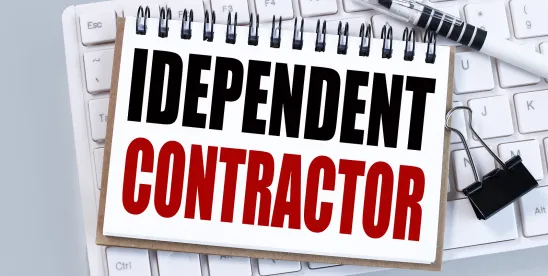A critical ruling in the world of franchising, in Haitayan v. 7-Eleven, Inc., 2021 WL 4078727 (C.D. Cal. Sept. 8, 2021), the U.S. District Court for the Central District of California applied the so-called Borello test to find that franchisees were independent contractors, instead of employees, for purposes of their claims for unpaid business expense reimbursements under California’s Labor Code section 2802.
The Court determined in a previous order that the Borello test applied to claims under California Labor Code section 2802, despite the California Supreme Court’s adoption of the ABC test in Dynamex Operations W. v. Superior Ct., 4 Cal. 5th 903 (2018). The lawsuit was brought in 2017, before the Dynamex decision and adoption of California Labor Code 2775 (codified ABC/Dynamex test).
Under Borello, the primary factor is whether the alleged employer has the right to control the manner and means of the work at issue. S. G. Borello & Sons, Inc. v. Dep’t of Indus. Rels., 48 Cal. 3d 341, 350 (1989). Although the right to control is the most important consideration, the Borello test also considers a number of secondary factors, which include:
-
whether the one performing services is engaged in a distinct occupation or business;
-
the kind of occupation, with reference to whether, in the locality, the work is usually done under the direction of the principal or by a specialist without supervision;
-
the skill required in the particular occupation;
-
whether the principal or the worker supplies the instrumentalities, tools, and the place of work for the person doing the work;
-
the length of time for which the services are to be performed;
-
the method of payment, whether by the time or by the job;
-
whether or not the work is a part of the regular business of the principal; and
-
whether or not the parties believe they are creating the relationship of employer-employee. Borello, 48 Cal. 3d. at 350-351.
Judge Dale S. Fischer held the franchisees exercised their own judgment and control in determining “what products they would carry, how to price the products, how to organize the store, what promotions to take part in, whom to hire or fire, the scheduling of employees, how often and when [franchisees] would be present at their stores, and what draws to take from the stores and when.” Haitayan, at 13.
The Court also found Borello’s secondary factors supported the franchisees status as independent contractors. Specifically, the Court found six (6) out of the eight (8) factors favored independent contractor status:
-
Franchisees operated a distinct business, which favored independent contractor status. In making that determination, the Court found franchisees held themselves out to the public and for tax purposes as independent, self-employed business people. Franchisees could also sell their franchised stores and operate other businesses. Id. at 14.
-
Franchisees’ work was not under the direction of Franchisor, which favored independent contractor status. This factor was essentially duplicative of control factor above. The Court determined franchisees were not subject to the control of field consultants, franchisees were not required to follow recommendations of field consultants, and franchisees suffered no consequences as a result of their failure to follow field consultants’ recommendations. Id. at 15.
-
Franchisees work required skill because the franchisee’s success was directly tied to their business savvy in operating their store, which favored independent contractor status. Franchisees made many decisions that had a direct impact on their profits. Id. at 15.
-
Franchisors provided the instrumentalities and tools, which favored employment relationship. Although the franchisees owned the merchandized, the franchisor provided everything else, including store, store equipment, food service equipment, and computer system. Id. at 15-16.
-
Lengthy tenures under the franchise model neither favored employment relationship nor independent contractor status. Although the franchise agreements were often 15 years in length, which generally favor employment relationship, a shorter term would not make economic sense as it would prevent the franchisees from recouping their investments. Id. at 16.
-
Franchisee was not guaranteed any pay from Franchisor, which favored independent contractor status. Court noted hourly payments favored employment relationship while payment by the job indicated independent contractor status. Here, Franchisees’ income was dependent on the profits they generated from operating their stores. Id. at 16.
-
Franchisor was in the business of franchising, and not in the business of operating convenience stores, which favored independent contractor status. The evidence showed that franchisor’s core business was franchising, not operating convenience stores: franchisor primarily locates and develops store sites, markets and sells franchises, licenses the right to use its intellectual property, develops an operations manual that sets forth its recommended practices, leases property and equipment, conducts advertising, develops new products, and provides back office support and business advisory assistance to franchisees. Id. at 16-17.
-
Franchisees held themselves out as independent contractors before and after the lawsuit, which favored independent contractor status. Evidence demonstrated that one franchisee advised other franchisees to make their own decision regarding a product promotion experiencing mixed sales results; another told franchisees that they were independent contractors and not at-will employee store managers; and the franchise agreements that the franchisees executed explicitly stated that they were independent contractors. Id. at 17-18.
Even though the Borello test no longer applies in California unless one of the exceptions set forth in Labor Code 2775 is met, this 7-Eleven decision is instructive for franchisors seeking to rebut misclassification claims under either test in California, as well as nationwide. For example, the A prong of the ABC test is similar to the principal “control” factor in Borello, and the B and C prongs of the ABC test are similar to the secondary factors of the Borello test. Furthermore, the Court noted that the facts in this case differed from those involving the commercial cleaning franchise industry, which was targeted by the ABC test. Id. at 17. The Court also agreed with Curry v. Equilon Enterprises, LLC, 23 Cal. App. 5th 289 (2018), where the court found that the Franchisor in that case (Shell) was not in the business of operating fueling stations. Id.
Given the Federal Court’s detailed analysis, this decision should give comfort to franchisors that operate in a manner similar to 7-Eleven.





 />i
/>i
